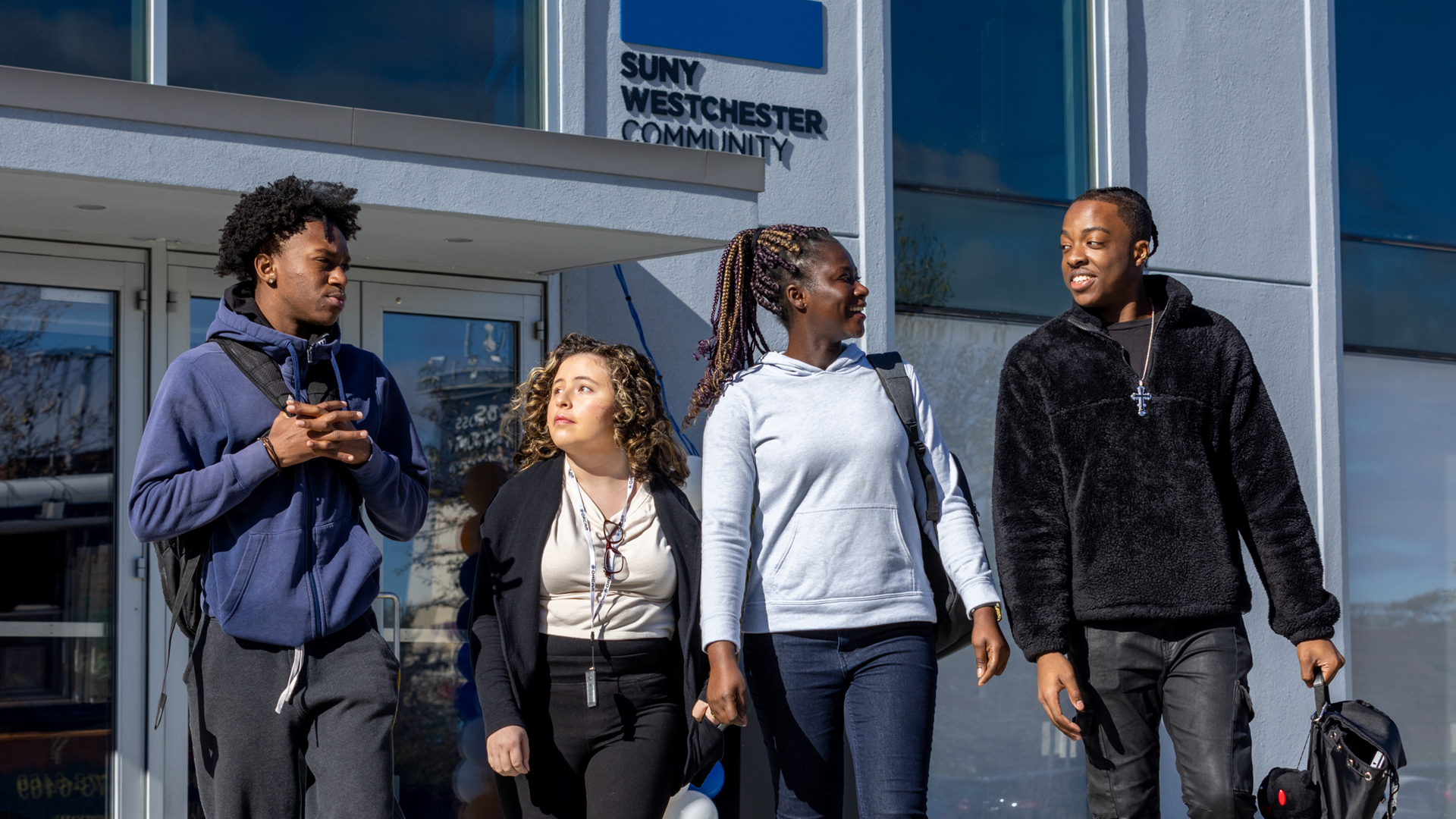
Anti-Hazing Policy
What is Hazing?
Any intentional, knowing, or reckless act committed by a person (whether individually or in concert with other persons) against another person or persons regardless of the willingness of such other person or persons to participate.
NOTE: This definition is compliant with New York State law. Under New York State Penal Law, a person may be charged with hazing if, during another person’s initiation into or affiliation with any organization, they intentionally or recklessly engage in conduct that creates a substantial risk of and/or causes physical injury to another person. A criminal charge of hazing may result in a violation or misdemeanor.
Hazing is abusive, degrading, psychologically damaging, and may be life-threatening. It is unacceptable in all forms and has no place at SUNY Westchester Community College. Student groups, organizations, and athletic teams are important contributors to a vibrant and positive campus life and are expected to act in accordance with the Student Code of Conduct and to treat others with respect. Hazing by individuals and student organizations is prohibited in any form both on campus and off campus.
Amnesty
SUNY Westchester Community College recognizes that students are sometimes reluctant to report hazing activity, due to a fear of potential consequences for their own conduct. For this reason, the College has adopted an amnesty policy which states that a student who acts in good faith to report activity that may fall within the definition of hazing and/or a victim who cooperates fully as a witness in the investigation and disciplinary process may not be subject to student conduct sanctions related to their own participation in hazing behavior and other behavior including related to alcohol and/or drug violations, as determined by the College in its sole discretion.
In the event amnesty is granted for self-reported behaviors, if evidence is presented that the student has continued to engage in hazing behaviors or has knowledge of hazing activity that was not reported, they may be held accountable for past behavior. Students who choose to report and request amnesty for their own conduct should know that amnesty does not apply to any criminal or civil action that may be taken by any law enforcement agencies, including College Police.
Frequently Asked Questions
The following are non-exhaustive examples of conduct that causes or creates such a risk:
- Whipping, beating, striking, electronic shocking, placing of a harmful substance on someone’s body, or similar activity;
- Causing, coercing, or otherwise inducing sleep deprivation, exposure to the elements, confinement in a small space, extreme calisthenics, or other similar activity;
- Causing, coercing, or otherwise inducing another person to consume food, liquid, alcohol, drugs, or other substances;
- Causing, coercing, or otherwise inducing another person to perform sexual acts;
- Any activity that places another person in reasonable fear of bodily harm through the use of threatening words or conduct;
- Any activity against another person that includes a criminal violation of applicable local, New York State, Tribal, or Federal law; and
- Any activity that induces, causes, or requires another person to perform a duty or task that involves a criminal violation of local, State, Tribal, or Federal law.
SUNY Westchester Community College will respect the privacy of reporters but cannot guarantee confidentiality for hazing reports. The information you provide to a non-confidential resource will be relayed only as necessary to investigate and/or seek a resolution and/or to comply with other appropriate SUNY Westchester Community College policies and procedures, and any federal, state and/or local laws, rules and regulations. SUNY Westchester Community College will limit the disclosure as much as possible, even if the institution determines that the request for confidentiality cannot be honored.
Offices and officials who are confidential resources will not report to law enforcement or College officials without a complainant/reporting party’s permission, except for extreme circumstances, such as a health and/or safety emergency.
SUNY Westchester Community College offices that are considered confidential are as follows:
- Licensed Mental Health Counselors in the Department of Mental Health & Counseling Services
- Licensed Nurses in the Office of Health Services
After a report is received, SUNY Westchester Community College will quickly review the submission and determine the next appropriate actions.
Hazing Transparency Report
“SUNY Westchester Community College has no Student Code of Conduct violations related to hazing.”
